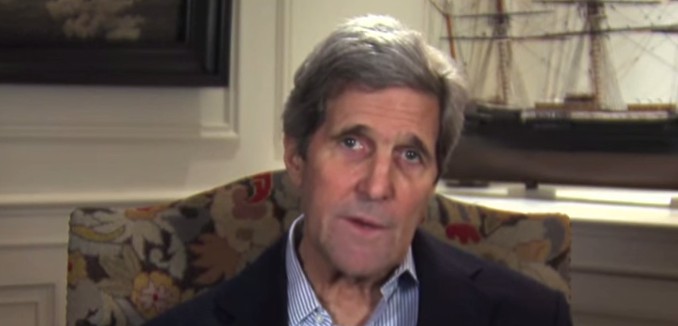The United States never sought to use the nuclear deal with Iran to get a full accounting of Tehran’s past nuclear research, Armin Rosen wrote in an article published by Business Insider on Monday, citing a State Department report obtained by the publication.
Rosen, who noted that there is “extensive evidence” to support suspicions that Iran had an illicit nuclear weapons program until 2003, argued that the International Atomic Energy Agency (IAEA) must be allowed “to identify key personnel, facilities, supply chains, and past activities to establish exactly how far along Iran’s weaponization activities really are and to recognize whether those activities have been restarted.” Experts have long insisted that this information is vital to any efforts to monitor Iran’s compliance with the deal.
However, the 18-page State Department document cited by Rosen, called a “verification assessment report,” confirms that the U.S. is satisfied with its current knowledge of Iran’s past illicit nuclear research and is not inclined to demand complete answers from Tehran.
“An Iranian admission of its past nuclear weapons program is unlikely and is not necessary for purposes of verifying JCPOA commitments going forward,” the report reads. “US confidence on this front is based in large part on what we believe we already know about Iran’s past activities”
“The United States has shared with the IAEA relevant information, and crafted specific JCPOA measures that will enable inspectors to establish confidence that previously reported Iranian PMD activities are not ongoing,” it continued. “If credible information becomes available regarding any renewed Iranian efforts, it would be shared with the IAEA as appropriate, whether involving previous people, locations, entities, or otherwise. We believe other IAEA member states will do the same.”
Rosen explained that the U.S. isn’t pressuring Iran to come clean about its past nuclear activities because it has “confidence that US intelligence already knew enough about the extent of Iran’s weaponization program.”
The State Department document cited by Rosen echoes comments previously made by U.S. Secretary of State John Kerry. At a press briefing in June, Kerry said:
Michael, the possible military dimensions, frankly, gets distorted a little bit in some of the discussion, in that we’re not fixated on Iran specifically accounting for what they did at one point in time or another. We know what they did. We have no doubt. We have absolute knowledge with respect to the certain military activities they were engaged in.
What we’re concerned about is going forward. It’s critical to us to know that going forward, those activities have been stopped, and that we can account for that in a legitimate way. That clearly is one of the requirements in our judgment for what has to be achieved in order to have a legitimate agreement. And in order to have an agreement to trigger any kind of material significant sanctions relief, we would have to have those answers.
In July, The Wall Street Journal reported (Google link) that Syrian dictator Bashar al-Assad was still using chemical weapons, despite claims that his stockpiles were destroyed under a U.S.-Russian deal. One of the reasons cited for the failure of the agreement was poor intelligence.
The CIA had been confident that Mr. Assad destroyed all of the chemical weapons it thought he possessed when the weapons-removal deal was struck. In recent weeks, the CIA concluded that the intelligence picture had changed and that there was a growing body of evidence Mr. Assad kept caches of banned chemicals, according to U.S. officials.
The Journal‘s report prompted Ely Karmon, a senior research scholar at the International Institute for Counter-Terrorism, to ask, “If this is the record of the international community in dismantling and monitoring the chemical and nuclear facilities in Syria, how exactly [will it] do better in monitoring the vast Iranian nuclear infrastructure?”
Concerns over the American retreat on the demand that Iran come clean about the possible military dimensions of its nuclear research have increased in anticipation of the IAEA’s upcoming report on Iran’s past nuclear work. The IAEA’s Director General, Yukiya Amano, has said that the agency’s findings were “not black and white,” but other statements he made suggest that Iran has not been forthcoming in answering the IAEA’s questions.
If IAEA says Iran likely had a nuclear weapons program in its report, the deal does not need to end. False narrative being propagated.
— Inst for Science (@TheGoodISIS) November 30, 2015
[Photo: U.S. Department of State / YouTube ]




